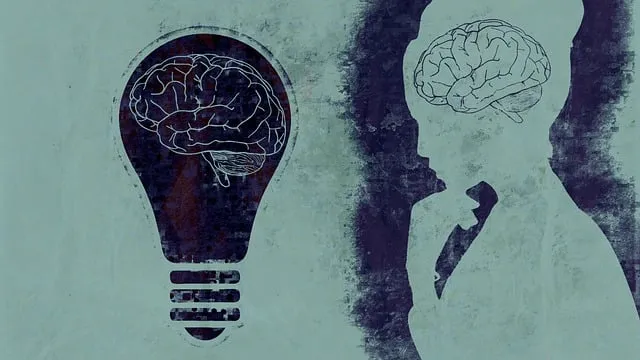Kaiser Health Network in Broomfield stands out for its commitment to culturally sensitive mental healthcare, addressing a critical need in diverse communities. Through initiatives like Community Outreach Programs, Inner Strength Development, and Mental Wellness Journaling Exercise Guidance, they bridge gaps between providers and underserved populations. Their diverse therapist roster, reflected in the Mental Wellness Podcast Series, ensures patients from various backgrounds find understanding and trust. Kaiser's culturally sensitive practices, including training programs focusing on self-care and depression prevention, empower therapists to offer personalized, effective care for all. This makes Kaiser a top choice for those seeking quality mental healthcare in Broomfield, answering "does Kaiser have good therapists in Broomfield?" emphatically yes.
In today’s diverse society, cultural sensitivity is a cornerstone of effective mental healthcare. Understanding and respecting cultural differences can significantly improve patient outcomes and access to quality services. This article explores this vital aspect through various lenses, including cultural competence vs. sensitivity, barriers to culturally sensitive care, and strategies for training competent therapists. We also delve into the Kaiser Network’s efforts in Broomfield, examining their commitment to diversity and quality in therapy services. Discover how these approaches contribute to a more inclusive mental healthcare landscape.
- Understanding Cultural Sensitivity: A Cornerstone of Effective Mental Healthcare
- The Kaiser Network: Exploring Quality and Diversity in Therapy Services (Broomfield)
- Cultural Competence vs. Sensitivity: Distinguishing the Differences in Clinical Practice
- Barriers to Accessing Culturally Sensitive Mental Health Care
- Strategies for Training and Hiring Culturally Competent Therapists
Understanding Cultural Sensitivity: A Cornerstone of Effective Mental Healthcare

Understanding cultural sensitivity is paramount in mental healthcare, especially when considering locations like Broomfield where diverse communities thrive. The Kaiser Health Network, known for its comprehensive services, emphasizes this aspect through various initiatives. For instance, their Community Outreach Program Implementation focuses on bridging the gap between healthcare providers and underserved populations, ensuring culturally competent care. This involves understanding each patient’s unique background, beliefs, and values to create an environment that fosters trust and openness.
By integrating practices like Inner Strength Development and Mental Wellness Journaling Exercise Guidance, mental health professionals can cater to diverse needs. Cultural sensitivity encourages providers to go beyond typical treatments, exploring alternative approaches that resonate with different cultural backgrounds. This tailored care enhances patient engagement, improves outcomes, and promotes overall well-being, making it a cornerstone of effective mental healthcare services in Broomfield and beyond.
The Kaiser Network: Exploring Quality and Diversity in Therapy Services (Broomfield)

In Broomfield and beyond, the Kaiser Network stands out for its commitment to quality and diversity in therapy services. Their Mental Wellness Podcast Series Production showcases a range of therapists, each bringing unique cultural perspectives to mental healthcare. This approach ensures that patients from diverse backgrounds can find therapists who understand their experiences, fostering a deeper level of trust and connection.
The network’s focus on mental health awareness and resilience building is evident in their inclusive practices. By employing therapists with varied ethnic, racial, and cultural backgrounds, Kaiser addresses the need for culturally sensitive care. This diversity not only broadens the spectrum of support available but also empowers patients to see themselves reflected in their healthcare providers, promoting a more holistic and effective healing process.
Cultural Competence vs. Sensitivity: Distinguishing the Differences in Clinical Practice

In the realm of mental healthcare, cultural sensitivity is paramount to ensuring effective treatment and building trust with diverse patient populations. While often used interchangeably, cultural competence and cultural sensitivity are distinct concepts. Cultural competence refers to a therapist’s ability to understand and appreciate cultural differences, while cultural sensitivity involves actively applying this knowledge to deliver tailored care. For instance, a culturally sensitive approach might involve adjusting therapy techniques or using specific languages spoken by patients, addressing potential barriers that could impede progress.
When evaluating mental health services, such as those offered by Kaiser in Broomfield, emotional regulation and crisis intervention guidance are key areas where cultural sensitivity shines. Therapists who demonstrate an understanding of their clients’ cultural backgrounds can provide more personalized support, helping individuals navigate emotional challenges while respecting their unique cultural contexts. Moreover, in a diverse society, fostering mental health awareness requires culturally sensitive practices to reach and assist all communities effectively.
Barriers to Accessing Culturally Sensitive Mental Health Care

Accessing culturally sensitive mental health care can be hindered by several barriers, especially in diverse communities. One significant challenge is the lack of therapists trained in cultural sensitivity and proficiency, particularly in areas like Broomfield, where finding specialists who understand the unique needs of various ethnic and cultural backgrounds might prove difficult. This scarcity often leads to patients receiving generic treatment approaches that may not address their specific emotional and psychological requirements.
Furthermore, language and communication differences can create significant obstacles for individuals from non-English speaking communities. The availability of qualified interpreters and culturally competent therapists who can provide effective crisis intervention guidance is crucial but often limited. Such barriers contribute to health disparities and hinder patients’ ability to receive the compassionate care they deserve, especially when dealing with complex emotional regulation issues.
Strategies for Training and Hiring Culturally Competent Therapists

Training and hiring culturally competent therapists is a multifaceted process that requires intentional strategies to ensure effective mental healthcare services for diverse populations. Organizations like Kaiser, with locations such as Broomfield, can foster this competency through comprehensive training programs. These programs should cover cultural awareness, including learning about various ethnic, racial, and socioeconomic backgrounds. Therapists-in-training should be equipped to understand and appreciate the unique perspectives and experiences of their clients, which is crucial for building trust and fostering open communication.
Self-care practices and self-esteem improvement are integral components of this training. By promoting therapists’ well-being, they can better support their clients’ mental health journeys. Additionally, focusing on depression prevention strategies within these programs can help therapists identify early signs and provide proactive interventions, ultimately enhancing patient outcomes.
Cultural sensitivity in mental healthcare is not just a preference, but an essential component of effective treatment. As evidenced by research and initiatives like the Kaiser Network, communities diverse in race, ethnicity, and culture face significant barriers to accessing quality care. Understanding cultural sensitivity, recognizing the differences between competence and sensitivity, addressing hiring and training practices, and overcoming access barriers are crucial steps towards fostering a more inclusive mental healthcare system. In Broomfield, and across all regions, ensuring that therapists are culturally competent can lead to better outcomes for diverse populations, making mental health services truly accessible and beneficial for all.






